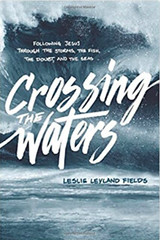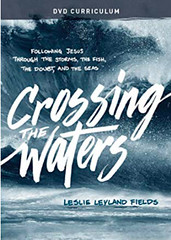I am so delighted to welcome Leslie Leyland Fields again, my sister-friend who is coming all the way from Alaska. She’s inviting us all to take an incredible journey with her — to her island in Alaska and across the waters to Galilee and through the gospels, where she has encountered Jesus in dramatic amazing ways. Be sure and watch the video below of this Bible study based on her award-winning book, Crossing the Waters: Following Jesus through the Storms, the Fish, the Doubt and the Seas. (And, finally, I am crossing the waters to this island as well next month!) It’s a grace to welcome Leslie to the farm’s front porch today…
guest post by Leslie Leyland Fields
The bread dough feels good under my hands, fleshy and supple as a body.
I’m almost done kneading. This should make ten loaves of whole grain baguettes. I’ve just finished two batches of salmonberry jam.
The kitchen is a disaster, as usual.
In just twenty minutes the fishermen will be in from the nets.
Nine people will fill the doorway and drop to their seats, famished.
Just as I start setting the table, I hear the ATV roaring up to the house and the excited feet of news on the doorstop. “Mom! You gotta come! Isaac and I got a huge halibut! Everyone’s down on the beach!” Micah, 11, my youngest shouts.
I jump down the steps after him. We haven’t had fresh halibut for awhile. They’re flat fish that feed on the ocean bottom, and swim flat like a stingray, moving like a wave. The flesh is flaky and sweet.
Down at the beach, my sons and the fishing crew are standing around the tractor and the prize hanging from the fork lift: a halibut that’s bigger than me.
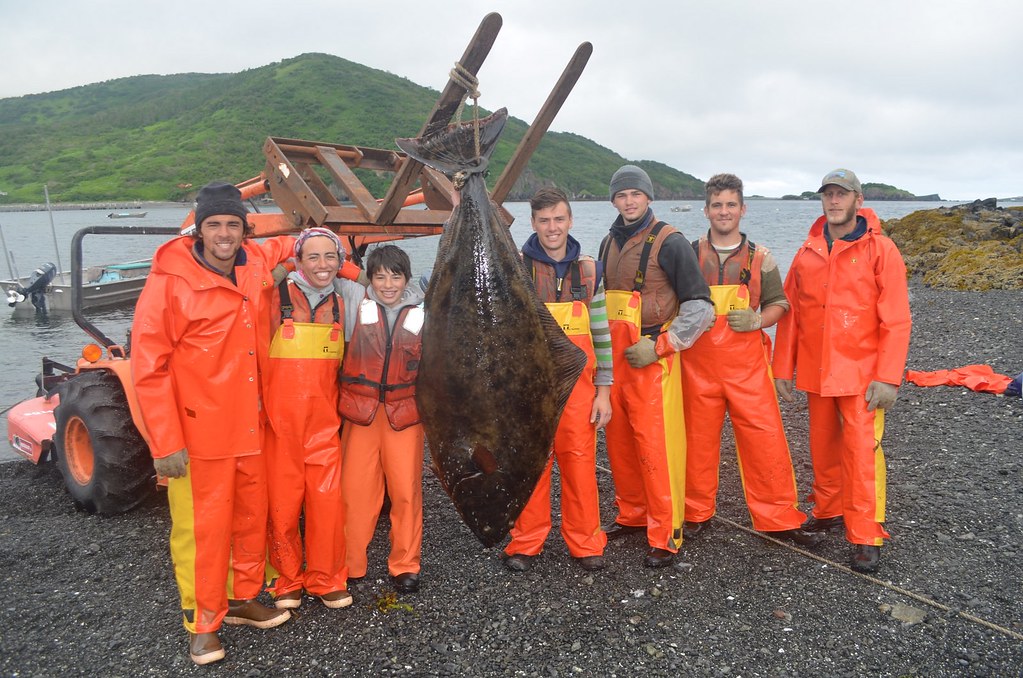
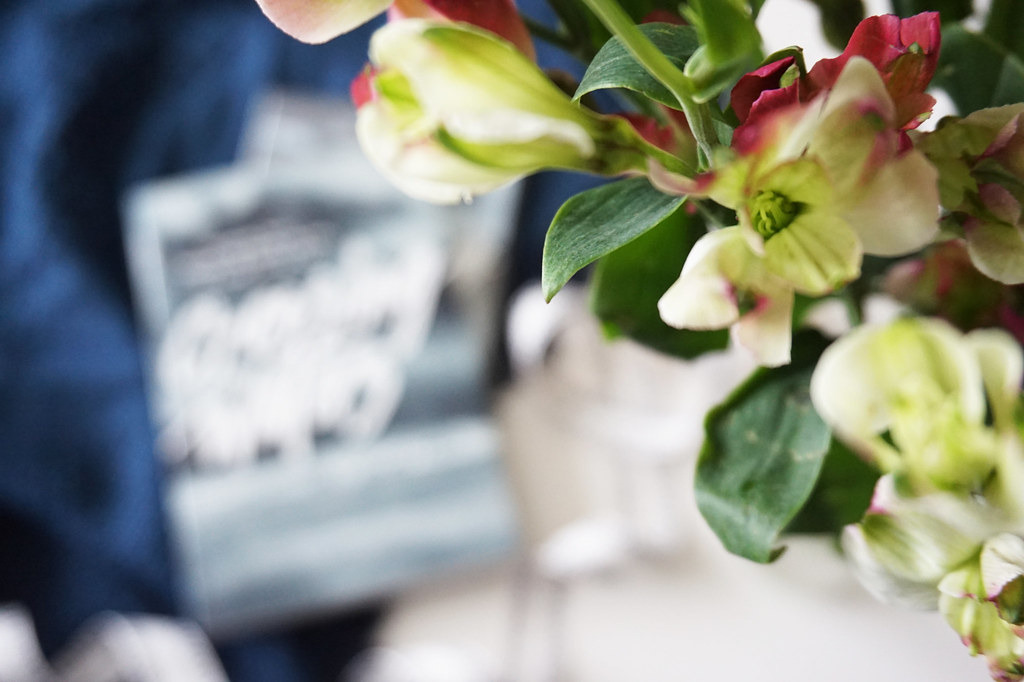
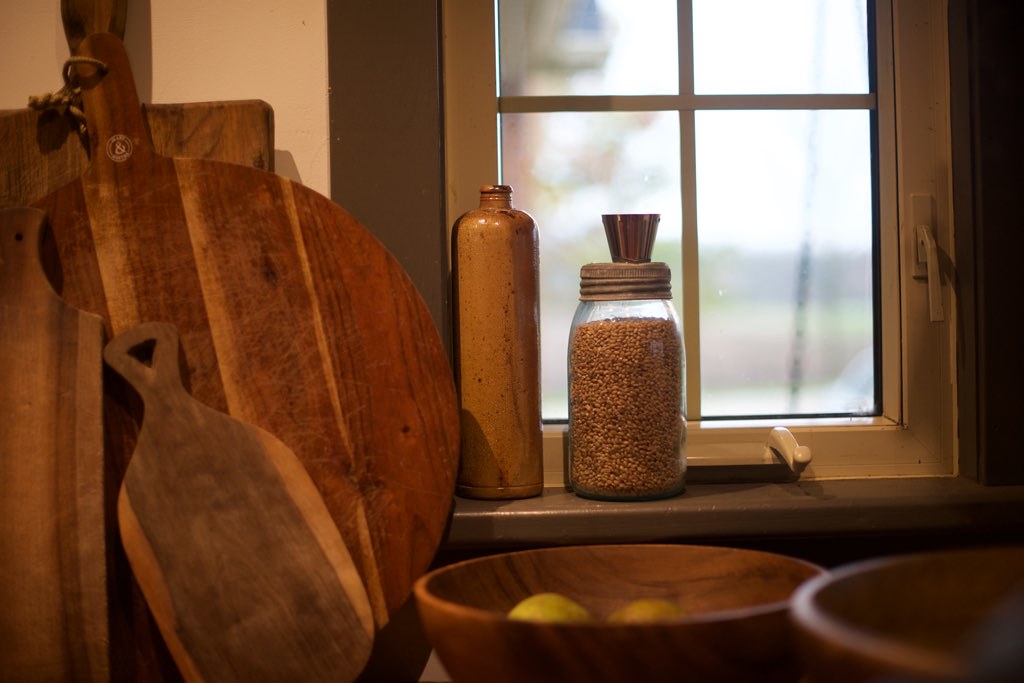
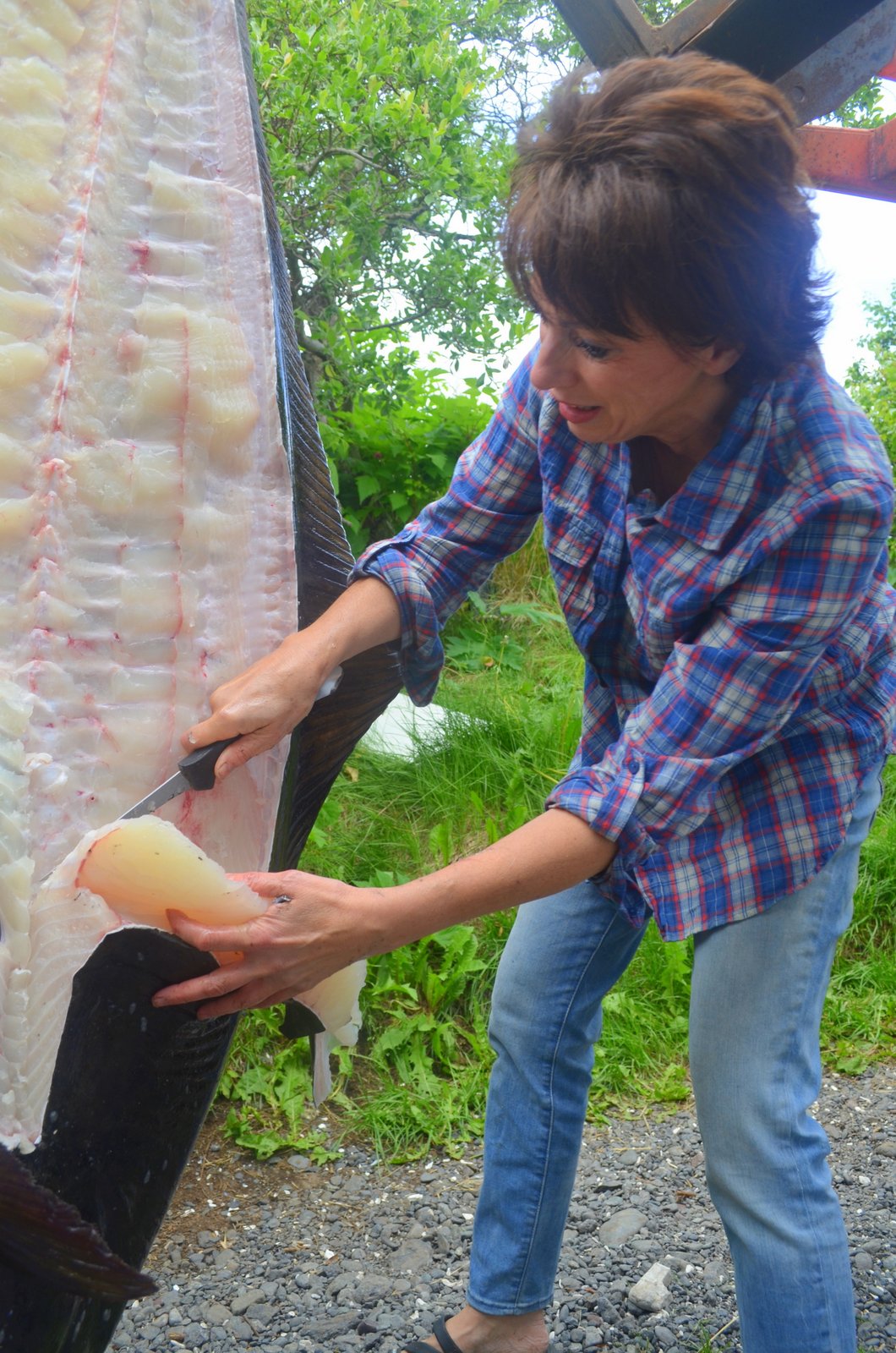
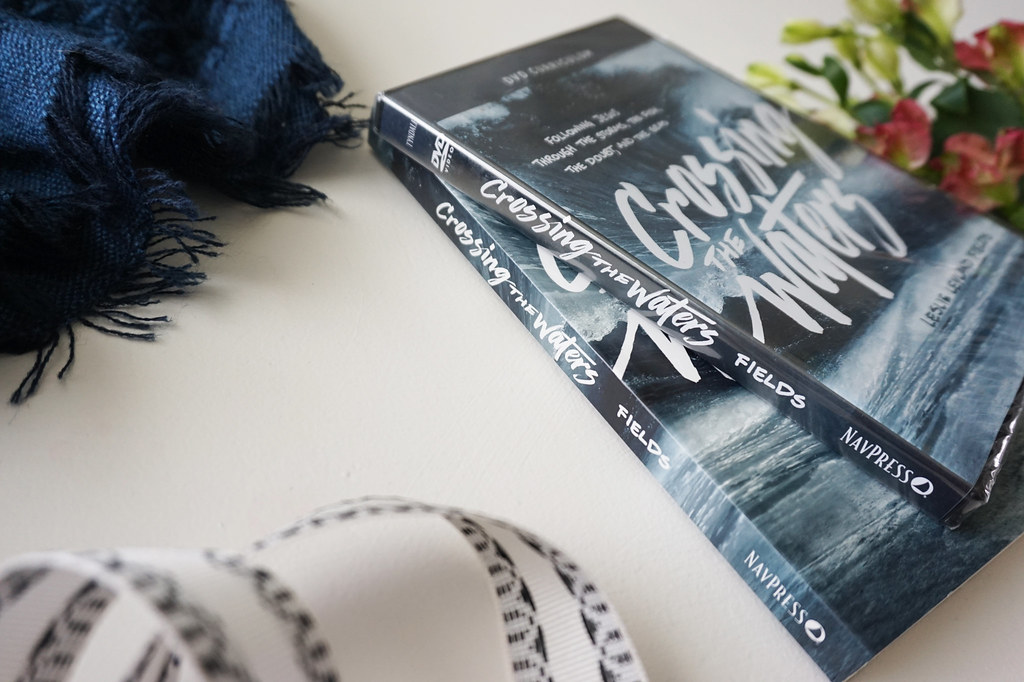

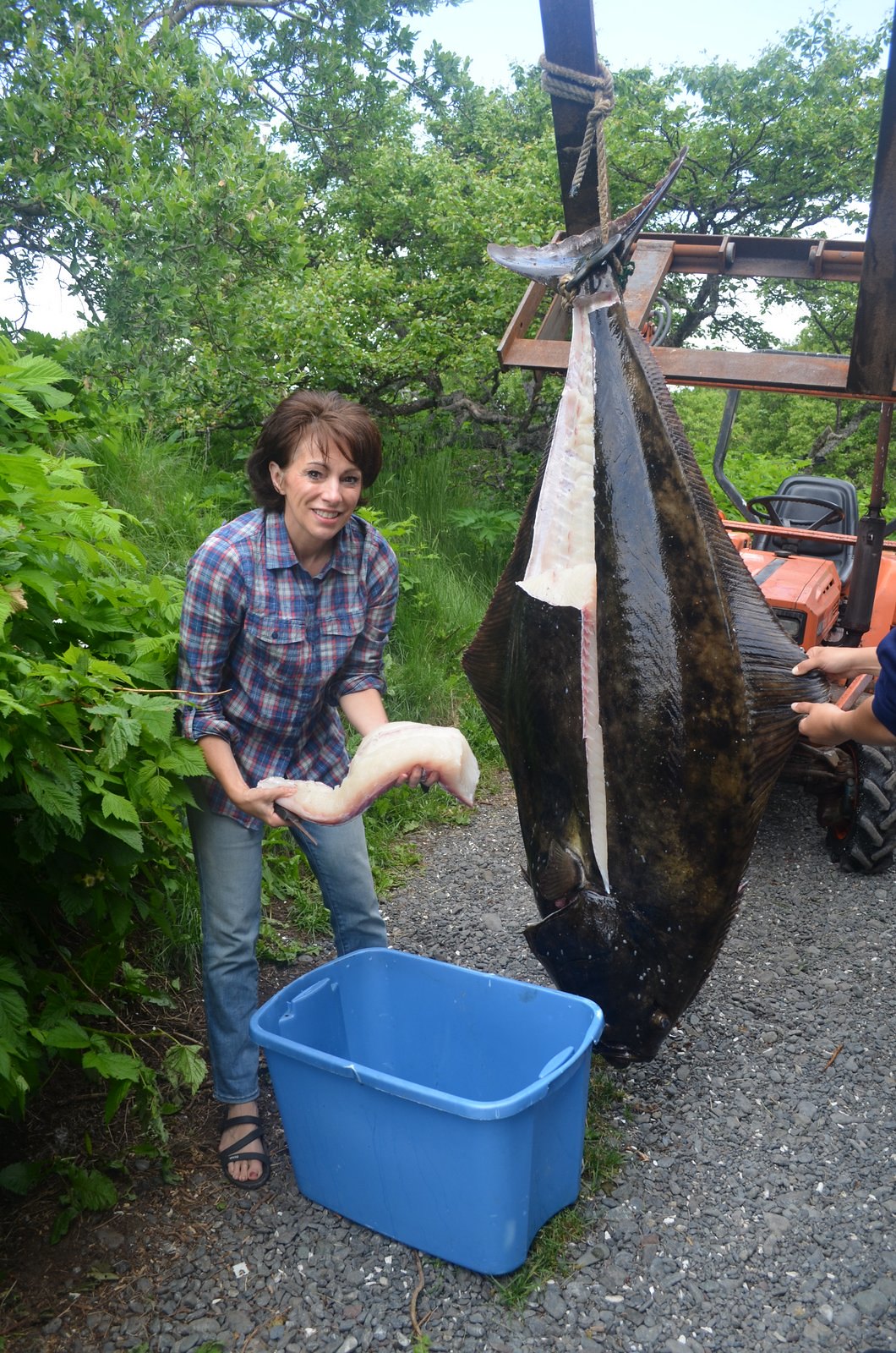
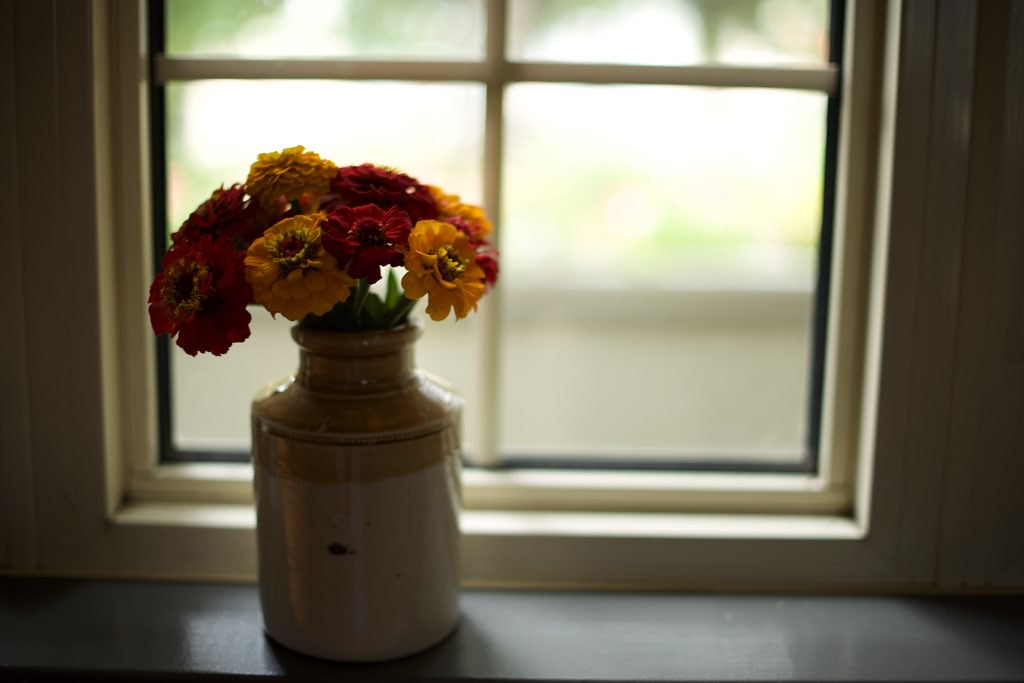
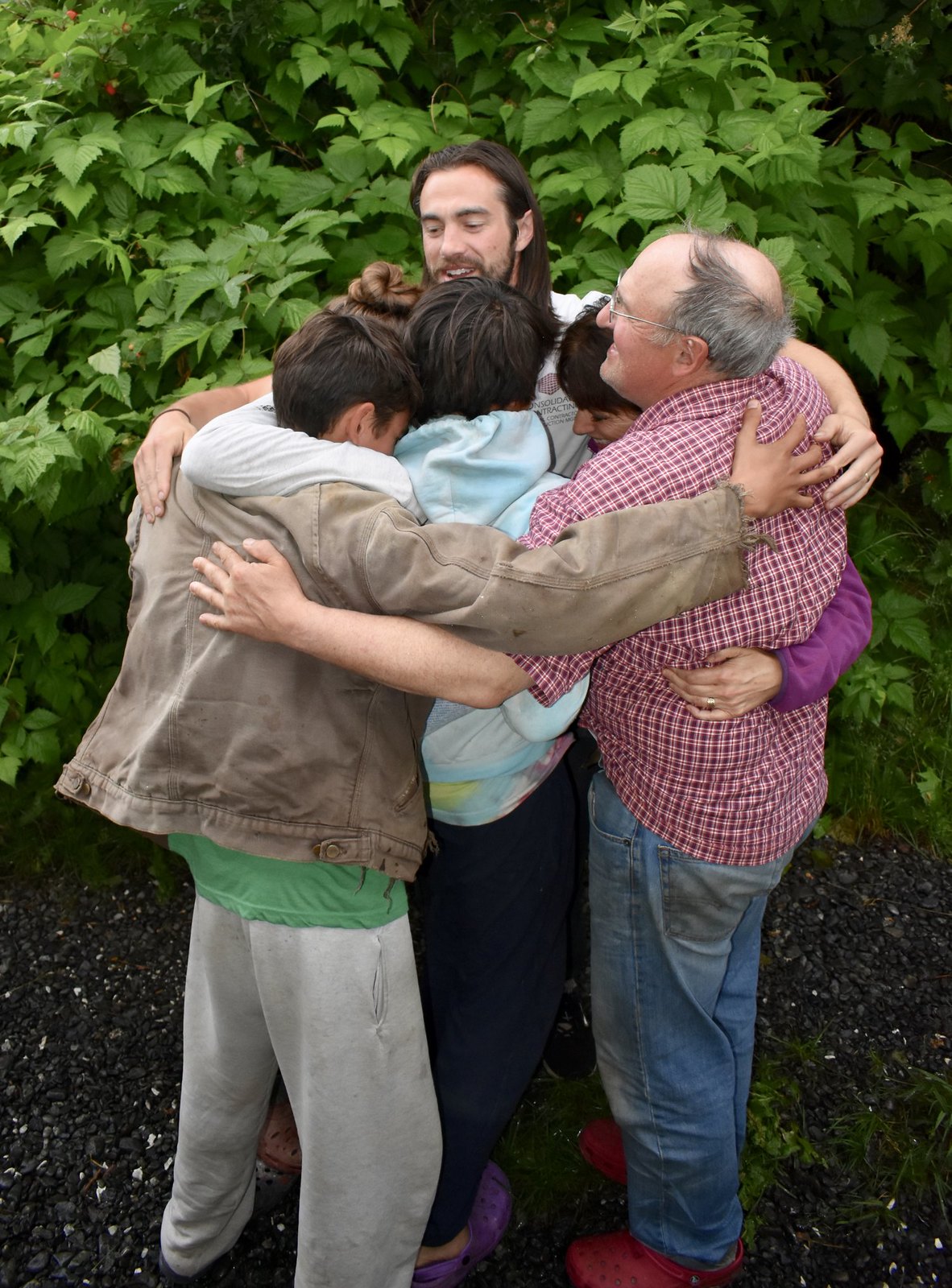

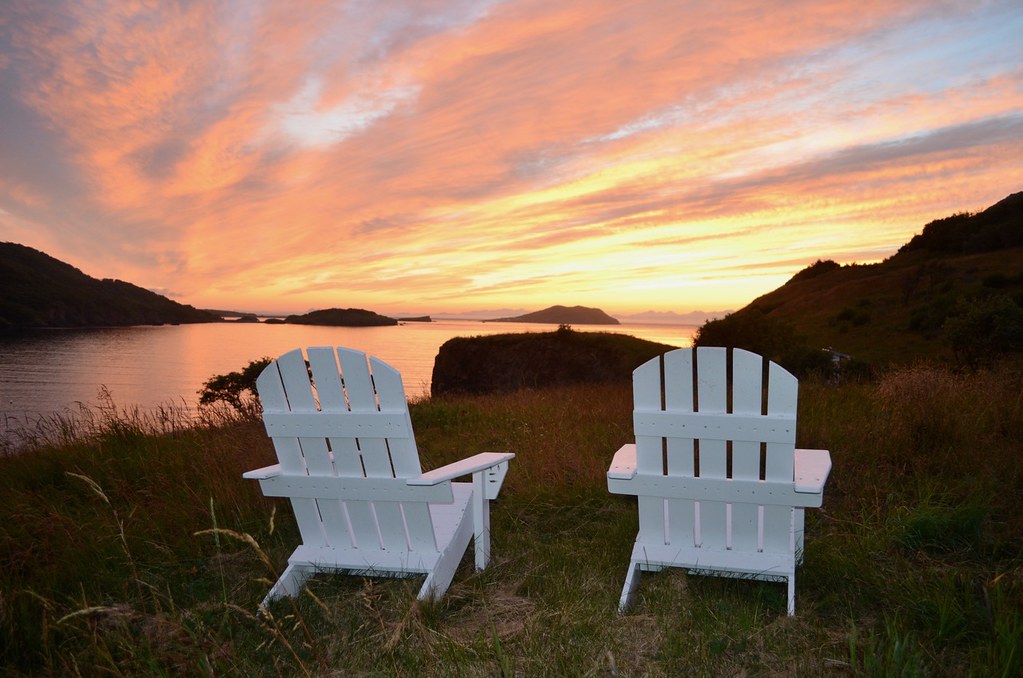
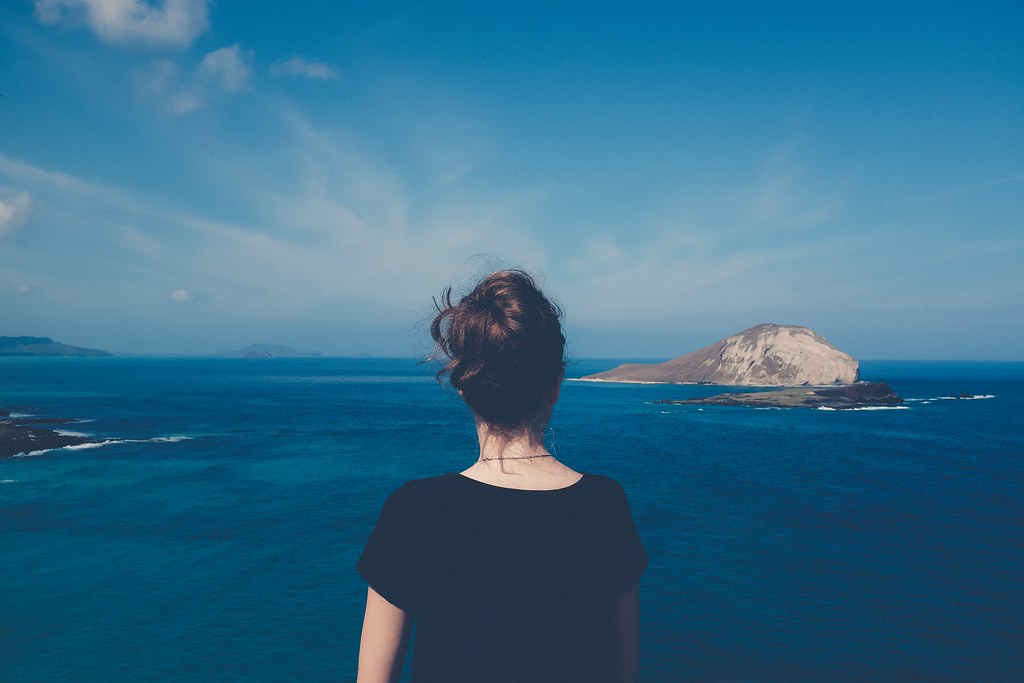
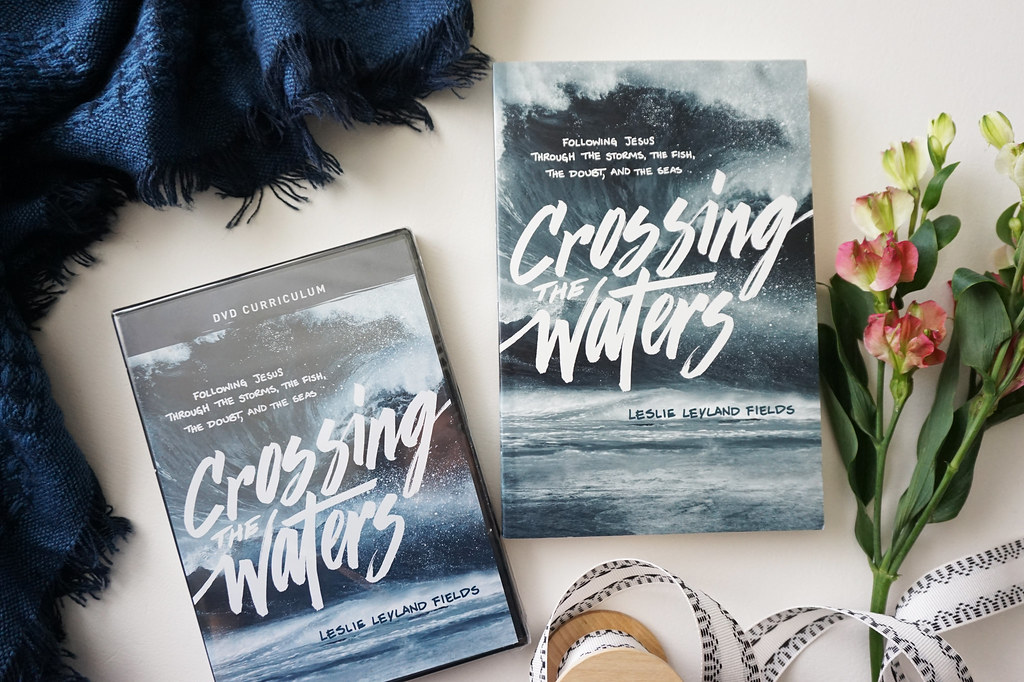

The beach is alive with color and bodies and happy faces.
We are all delighted that the morning and the ocean delivered something so wondrous to our hands.
Even the word “halibut” is wondrous. It comes from haly, the Old English word for holy, and butt, which referred to any fish that fed on the bottom.
The massive halibut was traditionally saved for the holiest feast days of the Church: Pascha and Christmas. This fish hanging from our tractor is nothing less than a “holy bottom fish.”
My husband Duncan later tells us that the fish is 215 pounds.
For three hours we package the sweet flesh for the freezer to feed us through the winter. For tonight, I decide I will make deep-fried halibut for the ten of us, and for tomorrow, from the scraps, halibut enchiladas. We waste nothing.
A few months later, I traveled to Israel. I spent one day walking to the grassy hillside where Jesus fed the thousands.
Jesus knew what that throng of villagers needed. He had healed every body—and every healed body needs food.
I stood there alone in the silence and emptiness of that field, imagining that feast.
The bread surely was chewy and soft, maybe even warm.
The sardines were dried and salted perfectly.
The hungry ate that miraculous until their bellies bulged, until they could eat no longer. Was there ever such a meal?
But Yeshua was not done. “Gather the pieces that are left over. Let nothing be wasted,” He gently urged His disciples.
If I had been there, I would have protested.
Why, Yeshua? When food is sparse, when a god is limited and his miracles cautious and rare—yes, save every crust!
But if you just filled every appetite—and you can do it again and again, why not throw away these leftover crumbs?
And even in the asking, I understand: Don’t waste anything that Jesus has given and multiplied.
And what has He not given and multiplied in my life, in all of our lives?
Over dinner that night, our fish camp table is heaped with two platters of deep-fried holy bottom fish, with green salad, quinoa pilaf, and two loaves of crusty whole grain bread. We sit before the table, salivating. We grab hands, ten of us.
Duncan prays, “Thank you, Lord, for your provision every day, but especially today for this halibut. Be with us the rest of this day. Help us to do our work well.”
I sit at the table with these faces around me—my family, our crewmen, friends. We pass the plates to one another amid laughing, chewing and slurping, and I marvel.
Duncan and I stumbled upon the beach of this island almost three decades ago, from another island, a place we had lived for ten summers.
We came here, to this island with two empty shacks and no one and nothing else.
Before this, I came from five thousand miles away, from my own growing-up houses ruined and cold, with little heat, from tables where food was hard to find and doled carefully to each plate and there was no more.
I didn’t know about miracles.
I didn’t know about Jesus.
I learned to work hard but there was never enough so I held on tightly to whatever I had.
And somehow, despite our own limitations and small faith, God multiplied the work of our hands on this island.
Out of nothing but hope and muscles and prayer, through storm, darkness, and snow, a house emerged from our hands. Then, children came one by one, filling this house, this island, until it throbbed with more living than I knew was possible.
Could anything be better?
Who needed anything more?
And yet there is more.
Out of the overflow, a workshop began a few years ago, with writers coming from everywhere to Harvester Island, harvesting words, multiplying images, stories, books, prayers. An island hillside that once drowned in isolation, loneliness, and even death has become a place of love and art and feasting and life.
The story should end there. But it’s not over yet.
Remember what happened after the meal on that hillside? The satiated masses so desired His power and His food, they tried to capture Him to “force Him to be king.”
They wasted it, this meal.
They missed it, this meal, this sign.
They wanted His food and His power; but they didn’t want Him.
They wanted their nation, but not His kingdom
They wanted supremacy, not humility.
A few hours later Jesus tells them, the ones who didn’t get it, “I AM the bread of life! Whoever comes to me will never go hungry, and whoever believes in me will never be thirsty.”
He wants them to know that He has come not just to feed them lunch but to be their life.Their bodies are healed and their stomachs are full and Jesus has told them who He is — but they still turn away.
What about me, us? Who does not want the bread Christ feeds us sometimes more than Christ Himself?
Which bread feels more real?
Tonight I look around my table. Look how filled we are!
I am so in love with all that Jesus has given me, so often I want only that.
But take all this away—no children, no husband, no sea, no tables full of halibut and bread and will I love Him still, this Christ?
Can I trust Him to be enough?
I know the answer.
The bread basket passes again. I reach in.
There is one crust left. I pick it up carefully.
I chew it slowly, eyes closed, not wasting a crumb.
Leslie Leyland Fields lives in Alaska and is the happy mother of 6, who have all grown up way too fast. She’s also sent off ten books into the world, including Crossing the Waters: Following Jesus through the Storms, the Fish, the Doubt and the Seas, and Forgiving Our Fathers and Mothers. She’s an international speaker and the founder of The Harvester Island Wilderness Workshop, a writing workshop that has welcomed Luci Shaw, Philip Yancey and this year, Ann herself will be Leslie’s guest writer. (Can God really be this good?) Join Leslie for her weekly adventures here.
Crossing the Waters: Following Jesus through the Storms, the Fish, the Doubt and the Seasis Leslie’s 10th book, and the one most written in blood, saltwater and scales. Through her experience as a mother, a follower of Jesus and a commercial fisherman, Leslie takes her readers on an extraordinary journey beside the disciples as they walked, rowed, and sailed with Jesus. You’ll encounter Jesus anew, and understand more deeply what it means to truly follow Him. (Winner of Christianity Today’s 2017 Book of the Year in Christian Living.)
Ready for the wettest, stormiest, wildest trip through the Gospels you’ve ever taken?
The Gospels are dramatic and incredibly wet, set in a rich maritime culture on the shores of the Sea of Galilee.
With the sights and sounds of Alaska as your backdrop and Leslie as your guide, you will gain deeper insight into Jesus and the fishermen who followed Him. This DVD curriculum contains six video teaching sessions filmed on location(!) and based on the award-winning book (with DVD study guide), Crossing the Waters: Following Jesus through the Storms, the Fish, the Doubt, and the Seas.
Both the Crossing The Waters book and the DVD curriculum are discounted at 30% off thru 8/31/18 right here with NavPress.com

